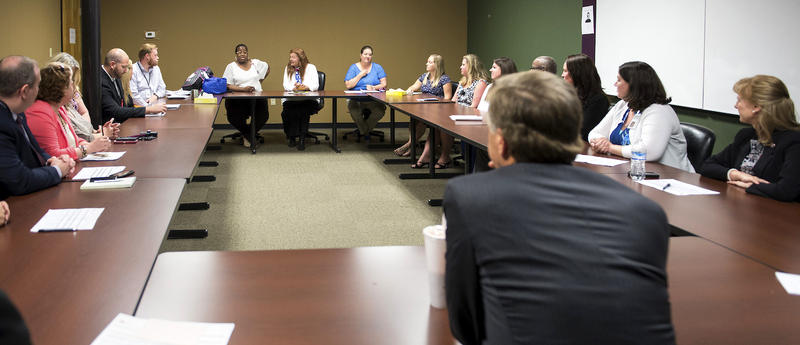
In the past two years, Tennessee’s foster care system showed “sustained major improvements” caring for vulnerable children, according to a study out this week. The findings mean that intense outside reviews of the Department of Children’s Services will likely end next year.
That will be a milestone moment.
For roughly the past 18 years, Tennessee DCS has had to follow federal court orders to improve, with experts monitoring more than 100 standards of care — keeping an eye on how quickly child abuse is investigated and whether kids in foster care end up reunited with families or adopted.
Over that time, Tennessee has dramatically shifted its child welfare system from relying on group homes and orphanages to using a less-institutionalized network of foster families.
In what could be the final report from researchers at the University of Chicago, they say Tennessee has been meeting dozens of standards, even as more children have come into state care in the past few years.
As one example, DCS counselors who visit with families have maintained manageable caseloads. (One exception is in Davidson County, which caused “concern” this year with a sudden caseload increase.)
The department was also thorough in providing health exams to children brought into state custody.
Details from the 137-page report drew praise from the watchdog group that sued the state in 2000.
“Amidst continued challenges that will affect the agency every year, Tennessee’s sustained success in reforming its foster care system is a major accomplishment,” wrote Ira Lustbader, litigation director at Children’s Rights.
The report did take up a new subject of interest, finding some racial disparities. Similar to longstanding national numbers, black children have had a harder time being adopted. However, for children in custody longer than two years, it was more common for black children than white children to end up reunited with their birth families.
To address racial gaps, Children’s Rights recommends DCS recruit more black foster families and diversify its state staff.
“The report is valuable for highlighting to the public where the hard work is being done and will continue to be done,” DCS Commissioner Bonnie Hommrich said in a statement to WPLN. “We agree, too, with the report’s suggestion that continuing to engage stakeholders across our state is critical to creating deep, sustainable improvements in the lives of all children and families.”


